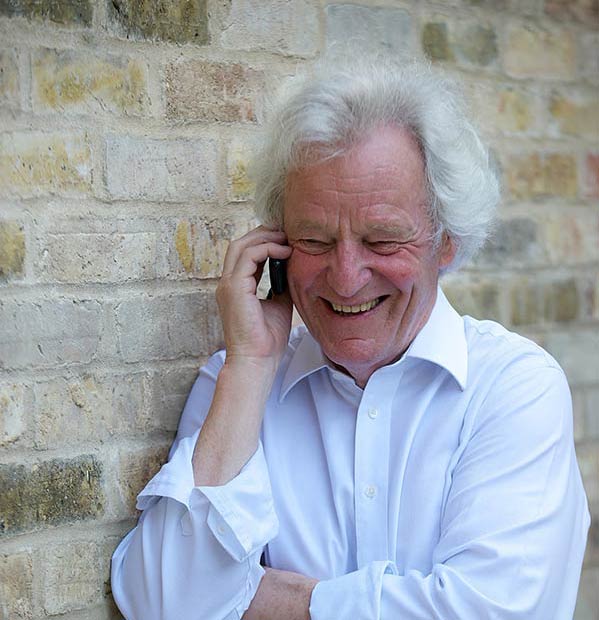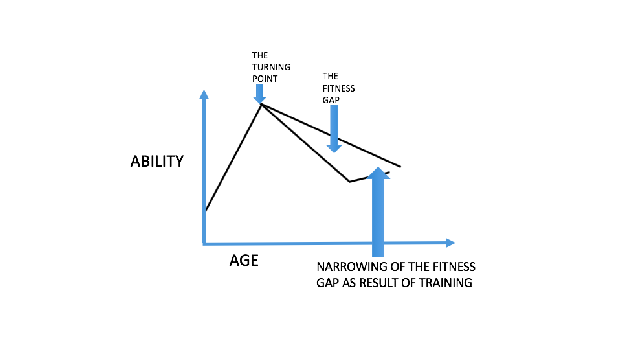Find out more or book a viewing
Complete the form to receive further information or to book an
exclusive viewing of one of our Show Apartments.

16 April 2021
By Sir Muir Gray
For many people, the concept of retirement is changing fundamentally and for the better. Retirement years have come to be seen as a time of ‘renaissance’ or ‘rebirth’ and I am proud to be leading the charge.
We now understand a lot more about what happens to us as we live longer and that it is possible to live both longer and better, principally by taking action to maintain or increase our level of fitness both physical and mental and to prevent or delay the onset of disability, dementia and frailty. The normal biological process of ageing does not have significant effects until the late nineties. The key is to support people in remaining physically, cognitively, and emotionally active, and this is particularly important because of Covid and Lockdown.
Many of the problems that people have hitherto blamed on ageing are in fact due to issues that can be addressed. There can be a loss of fitness resulting from decades sitting at a desk, in a meeting, on looking at a screen, television or, more recently, a computer. What happens to most people is that a gap, the fitness gap, opens up between optimum fitness and the status quo. The good news is that we know we can close the fitness gap at any age.

I believe that we should look after our bodies with love and care and discipline. There are four aspects of physical fitness to focus on. They are strength, suppleness, stamina, and skill. The first three are self-explanatory and can be practised with a rotation of well-known exercises and activities.
I would say though, that the single best way of maintaining and improving stamina is brisk walking. Doctors recommend at least ten minutes a day of brisk walking or, preferably, thirty minutes a day brisk walking which can be taken in three bite-sized chunks. If you can’t manage thirty do twenty. If you cannot manage twenty do ten. If you cannot manage ten do five. If you cannot manage five do two, the key thing is to walk briskly.
The fourth aspect - skill – is an interesting one. We see people developing skills through childhood, for example the skill to walk, and then many people develop skills either for their occupation or for their hobbies, the skill to play snooker or to bake the perfect souffle, for example. What is exciting about recent research is that it is now clear that the brain can develop new skills at any age. In the past it was thought that the brain just simply lost skills and neurons or nerve cells year after year after year. It is true that some loss of nerve cells neurons occurs, but the exciting news is that neurons can develop new connections when a new skill is learned. The brain is like the telephone junction boxes at the corner of many streets and if you are lucky you can see an engineer joining up the multicoloured wires in an astonishing feat. This is what happens when a new skill is being learned.
We also know that we can keep our minds healthy by keeping the blood flowing well, keeping active, sleeping well and, most important of all, staying socially engaged with other people, particularly with activities that present a challenge is good for brain, mind and body. Even someone who is in a high-powered job is often not as challenged as they were in the years from birth to twenty when the brain really develops, and it is clear now that there is no upper age limit for the brain to change and improve, a process now called neuroplasticity.
We should see life as a set of phases, not simply childhood, work and retirement. Every new phase in life is a new challenge which can also offer opportunities for strengthening the sense of social purpose, for engaging with others, and for being positive about the years ahead. All of these are not only an improvement on how we feel in the here now but also helps reduce the risk of falling onto the wrong side of the fitness gap or the loss of independence.
I’m pleased to be working in partnership with Riverstone as it gives me an opportunity to talk about the potential benefits of moving home later in life. Whilst it might feel daunting, with various hurdles to overcome, the act of moving creates challenges and opportunities to make the best use of one’s resources, both physical and intellectual. Riverstone aims to make the process of moving as stress free as possible and in return, to give you an environment in which you can have more time and energy for activity , both physical and mental which will help you live longer better.
Complete the form to receive further information or to book an
exclusive viewing of one of our Show Apartments.
Contact our client advisors for further information or to book an exclusive viewing of one of our show apartments.